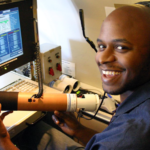By Ann Stych
BizWomen, May 17, 2019.
Women turn to family and friends as often as job postings for specific companies they’re interested in when looking for their first post-graduate job, a new survey found.
Employment site Monster asked 350 candidates what their priorities are in their job search after graduating from college, how they search for jobs and how they feel about their prospects.

Nearly six in 10 respondents (59 percent) were optimistic about finding a full-time job in one to two months after graduation. One-third of women (33 percent) said they were confident that they would find a job in less than one month, compared to less than one-fourth of men (23 percent).
Location and starting salary are the top priorities for job seekers, while company perks, mission and values and size were ranked less important.
Entry-level salaries for new degree-holders average $51,347 in 2019, up 1.9 percent over last year, The Wall Street Journal reported. But 65 percent of respondents to the Monster survey said they were making money from a side gig, and 41 percent said they planned to keep it after they graduate.
Four out of 10 women said they would be excited about moving for a job if they felt it was the right fit.
About 46 percent of women turn to word-of-mouth channels or online job postings specific to jobs they’re interested in to find a new position. But men are more likely to use Instagram in their job search (34 percent vs. 24 percent) and discuss their job search plan with a career advisor (26 percent vs. 16 percent).
More than half of Gen Z job-seekers prefer face-to-face interaction with recruiters over digital communication, and when it comes to the in-person interview process, women (46 percent) are less likely to be stressed about what to wear than men (51 percent). And women are also more likely to think dressing in attire that matches the company culture for an in-person interview could increase their likelihood of getting a job (49 percent).
About 11.2 million U.S. women were attending college in fall 2018, compared with 8.7 million men.











